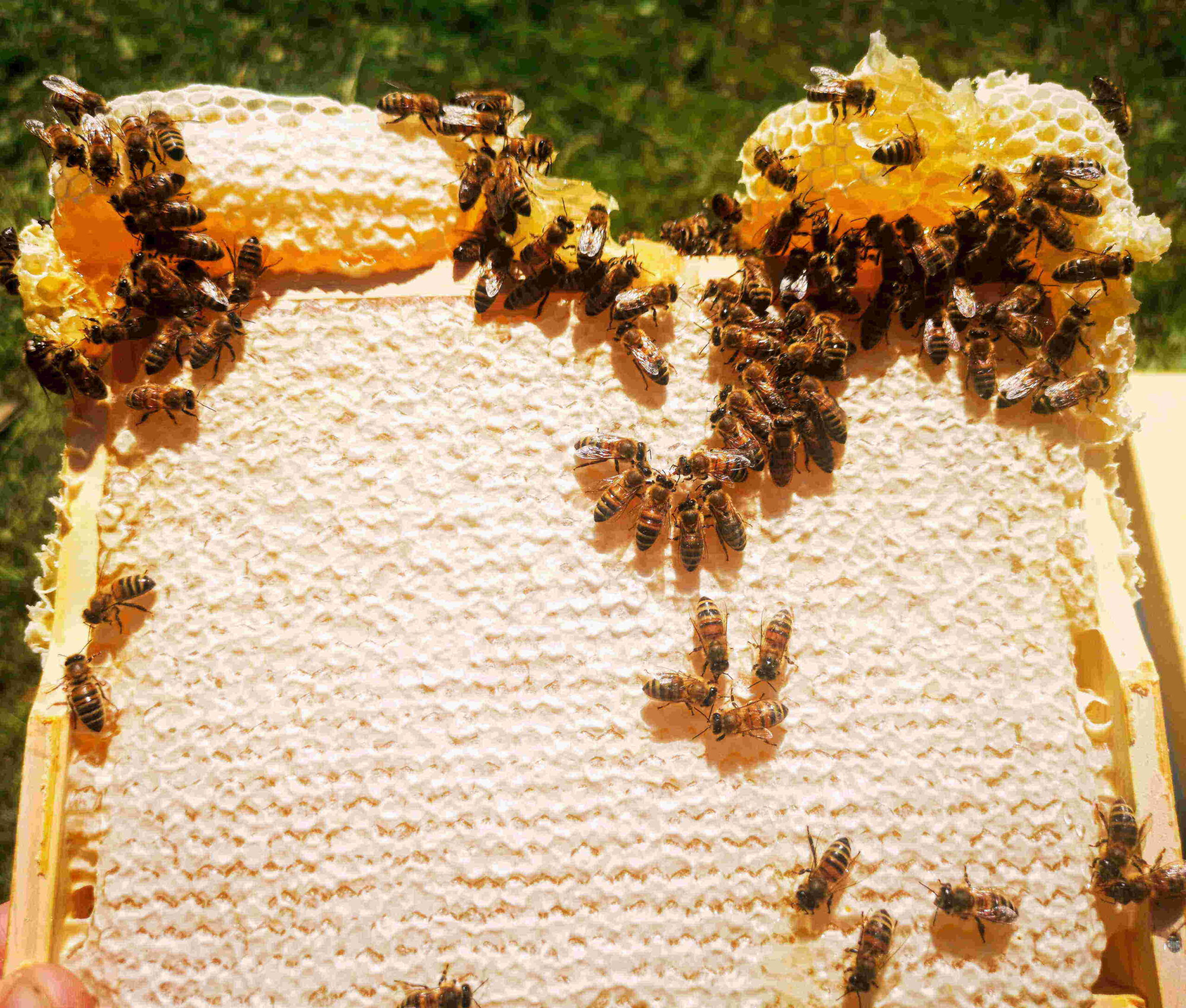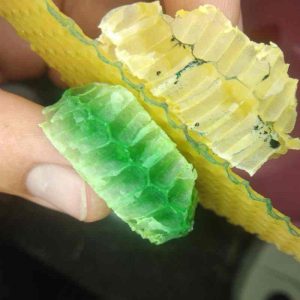Wax foundations save time and effort

Wax foundations save time and effort
Professional beekeeping is a collaboration between
man and bee. Bees give us the sweet fruits of their
labour, while we support their efforts in every way we can. One way to aid them in their work is to
place wax foundations in the hive frames, so that
the bees have an easier time of constructing cells
and save some of their energy for other tasks. This
post is all about what every beekeeper needs to
know about wax foundations.
The wax foundation – a warehouse of wax
If you think that bees simply add more wax to the wax
foundations you’ve provided them with to build
honeycomb cells – well, you’ve got the wrong
impression. An experiment was once conducted with a
foundation of green wax. It turned out that the bees
recycle the wax from the foundation itself to build the
honeycomb, only using minimal amounts of wax
produced by their own selves. Bees only need to make
about 30% of the wax themselves, while the remaining
70% they repurpose from the wax foundation. So, if
we really want to save our bees’ time and effort, we
should be using quality wax foundations.
Quality foundations – not for the convenience of
the beekeeper
Today, the market offers a myriad of wax foundation
products. Unfortunately, not all of them qualify as
high-quality products because they can’t effectively be
repurposed by the bee colony. The most frequently
occurring additive is paraffin wax. Real wax
foundations are very brittle (especially in colder weather), and cutting them or placing them in a frame
can be a real challenge. In order to understand the
main difference between natural wax and paraffin
wax, try pouring a little bit of one and the other in as
thin a layer as possible on the surface of a table.
Which substance do you think will be easier to
remove? Real wax will simply crumble. Wax
foundations that are this fragile are made of one
hundred percent beeswax... A foundation that has a
high paraffin content is much more fun for the
beekeeper: it’s bendy and easy to tailor. However, for
the bees, it’s not much of a help because they can’t
work the paraffin wax, which means that they’ll have
to make their honeycomb entirely out of wax they
make themselves.
Quality foundations accelerate nectar gathering
and colony development
If wax foundations contain additives, bees will
waste substantial amounts of time on honeycomb
construction, delaying their nectar gathering activity
and the development of the entire colony. Whereas
with real wax foundations, their honeycomb building
is done in no time and they can begin bringing nectar
in without further delay. The best option is to have
your wax foundations made by craftsmen you know
well and can rely on – and only from your own wax.
This way, you’ll get the best possible quality and also
protect your colonies from the diseases that sometimes
come with wax.
Quality wax foundations that are placed in a
timely manner will not only help the bees, but also
the beekeeper by ensuring the welfare of the bee colony. gerovę.





